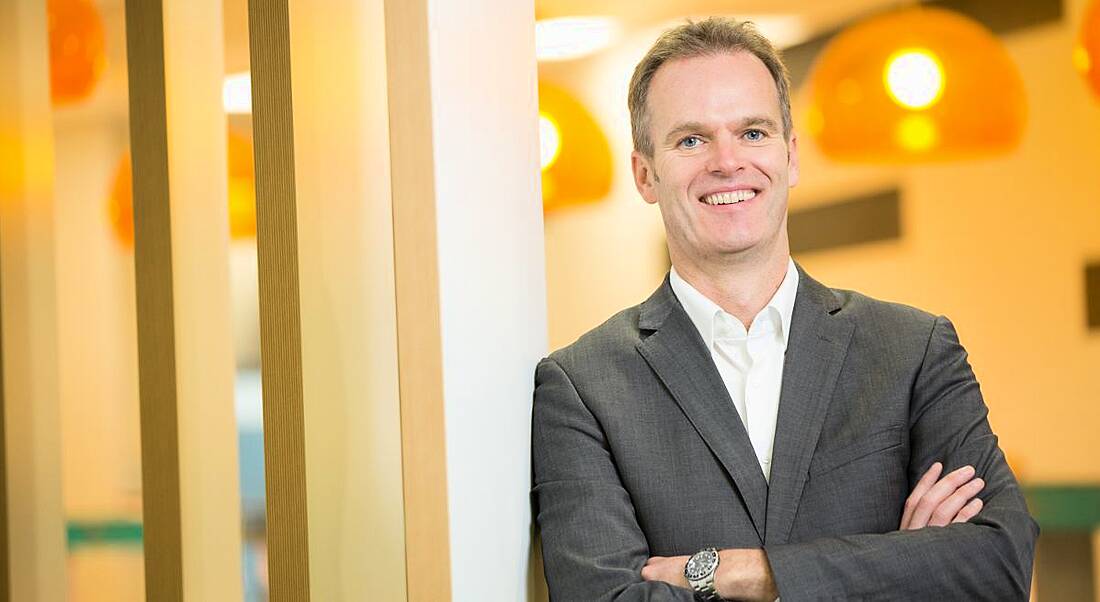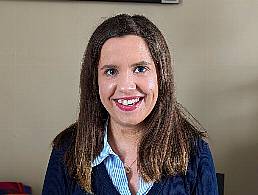A lot of people feel that, once they’ve chosen a career at the age of 17 or 18, they’re locked in for life. For others, there’s a little more leeway.
Very few people hit on their dream career as teenagers. There is often an evolution between the first day of college and some later point, during which ‘I want to be X’ morphs into ‘I want to be X, but with a fairly healthy dose of Y, and possibly even Z’. For some, the alphabet changes a little more dramatically.
Colm Galligan, medical director at MSD, started out as a doctor. When he discovered that wasn’t for him, he decided to think outside the box. Curiosity was the thing that brought him to where he is now: pharma.
What drew you to this career area?
I never thought I would end up working in the pharmaceutical industry when I started studying medicine. I realised a few years after graduating that I didn’t want to continue that career path, so I became curious about what other careers doctors could pursue. It was a real eye-opener! I found that there were qualified doctors doing all sorts of things, such as management consulting, investment banking, medical journalism, life insurance risk assessment and starting up companies. The list goes on and on…
What’s the best thing about working in this area?
I like the variety, and the tempo. It’s great to work with medicines all the way from conception to obsolescence. Everything changes so quickly!
Part of the nature of developing new medicines is how unpredictable it is. Sometimes you spend years getting a new medicine to market with huge hopes and it fails. Other times, a medicine that really didn’t look promising turns out to be a real game-changer, and it’s great to see the impact this can have on patients’ lives.
What’s the most exciting development you’ve witnessed in your sector since you started working in it?
Pharma is an exciting sector to be in – you’re working at the forefront of discovery, playing a significant role in addressing the world’s most vital, unmet needs.
The most exciting thing for me is probably immuno-oncology. It’s already revolutionising the treatment of many cancers. It was a real ‘aha’ moment when we realised that many cancers were switching off the body’s immune defences to them, and that we could turn those defences back on with medicines.
What aspect of your job have you struggled to get to grips with?
There’s a big culture shift from working in the health service to the corporate world. Most of the automatic authority you get used to as clinician doesn’t necessarily translate to the business world, so you have to earn your place at the table.
What’s been the hardest thing you’ve had to face in your career?
Leaving clinical medicine. It’s difficult to leave the only world you know. I only realised after leaving how little I knew about how the rest of the world works! I really had to keep learning and work on my communication skills to see others’ points of view.
If you had the power to change anything within the STEM sector, what would that be?
Teach it better. The biggest difference we can make is to excite the next generation, so we need to make it fun for kids from an early age. It’s all about having a keen and curious mind. I think that most people have a huge interest in it, but some can be put off by some of the lingo that goes with it.
There’s a huge opportunity for the Government to work closer with industry to deliver on products and services that can attract the best and the brightest talent from across the world to Ireland to take up careers in what is now a cutting-edge pharmaceutical environment.
Which of your personality traits makes you best suited to your job and this sector?
I like to think that I am reasonably calm and logical, and I’ll always try to have a go at working through things, even when they don’t seem to make any sense at all.
Is there something in your personal life that has helped you in your job?
I have a varied array of personal interests, from sports to physics, and cosmology to psychology. This has helped me build relationships with people from a range of backgrounds and enabled me to strike up conversations easily – very useful for networking.
How do you make connections with others in the STEM community?
Stay curious! I’m generally interested in other people’s areas of expertise. I think the more we look for unusual linkages between experts, the more likely we are to discover important breakthroughs. This is where future major advancements will come from.
Has mentorship or coaching been important in your career?
I’ve had some great managers over the years, and I have a good support network – people whose opinion I value and trust. I like running stupid questions by them, without feeling too stupid myself!
What advice would you give to someone thinking about a career in your area?
I’d say go for it! A career in pharma offers hugely ambitious and exciting career paths, working at the cutting edge of science and technology, and creating new treatments and products that save and enhance lives.
I’d also advise them to research it as much as they can. There are some stereotypical perceptions of pharma out there that aren’t really true. The more you can demonstrate genuine understanding of the type of job you are applying for, as well as how it all fits together, the better you are going to do at interview.




